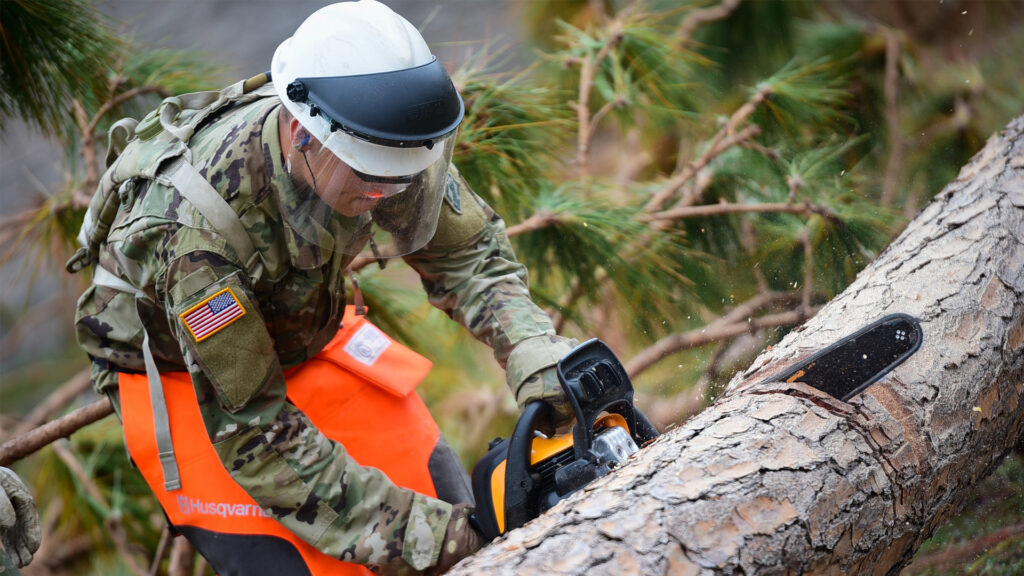A roundup of news items related to climate change and other environmental issues in Florida:
As climate change worsens, military eyes base of the future on Gulf Coast | Washington Post

PANAMA CITY, Fla. — Five years later, the scars of Hurricane Michael are still visible across Tyndall Air Force Base.
The snapped and jagged trunks of once-towering pines protrude across its 29,000 acres, leaving expansive views toward the Gulf of Mexico where thick forests once stood. Dusty, empty lots remain on the site of some of the hundreds of buildings that succumbed to the Category 5 storm in 2018.
But these days, what is most striking about life at Tyndall — home to roughly 3,500 employees and their families, including the 325th Fighter Wing, a key combat training force — is not what is gone, but rather what is emerging.
In DeSantis’ Fla., schools get OK for climate-denial videos | E&E News
Climate activists are like Nazis.
Wind and solar power pollute the Earth and make life miserable.
Recent global and local heat records reflect natural temperature cycles.
These are some of the themes of children’s videos produced by an influential conservative advocacy group. Now, the videos could soon be used in Florida’s classrooms.
As Florida heats up, architects go back to the past for ‘passive cooling’ home designs | Miami Herald
Jack Parker, a longtime environmental science professor at Florida International University, built his house from the ground up to use as little electricity as possible and take advantage of South Florida’s natural cooling forces.
The place was angled to catch prevailing breezes and shaded by strategically planted trees. Plentiful windows allowed air flow and vented hot air. It used about one-sixth the power of surrounding homes, saving money and also the family’s sanity after Hurricane Andrew struck in the muggy depths of August 1992 and knocked out power for 11 days.
“We were the only ones in our whole neighborhood that could sleep at night because we could open the windows,” Parker said. “Everybody else was in their homes really sweating and suffering from the heat.”
If you have any news items of note that you think we should include in our next roundup, please email The Invading Sea Editor Nathan Crabbe at ncrabbe@fau.edu. Sign up for The Invading Sea newsletter by visiting here.



